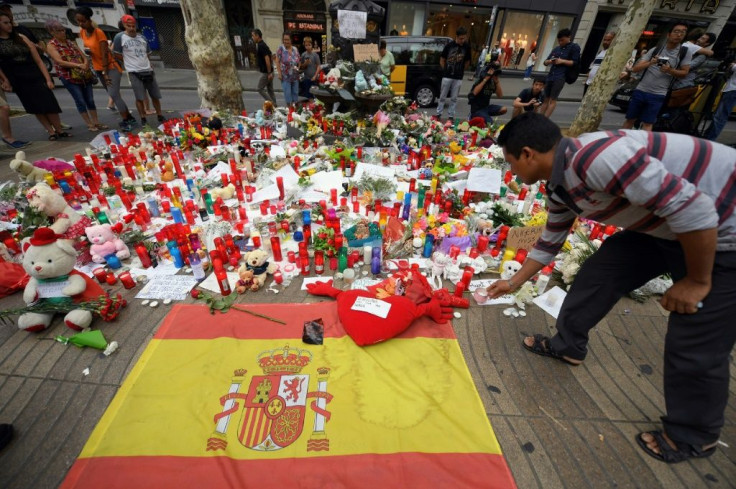Jihadism In Spain: A Silent But Real Threat
Europe's latest jihadist attacks may have targeted France and Austria, but Spain, like the rest of the continent, remains within the sights of extremists and the threat level is still "severe", experts say.
The issue has returned to the headlines in Spain since last month, with three men currently on trial near Madrid for helping the jihadists behind the 2017 vehicle attacks in Barcelona and a nearby resort that killed 16 and was claimed by the Islamic State (IS) group. The trial is due to end on December 16.
There have also been a string of arrests in recent weeks, including a Moroccan imam who, according to police, provided "logistical support" to an IS militant in Syria allowing him to settle in Spain in 2018.
There are five levels of threat in Spain and since 2015, the country has been at level four, meaning the threat of an attack is considered high.
Speaking at a recent forum organised by the Real Instituto Elcano think tank, Spain's junior security minister Rafael Perez Ruiz said jihadism was "the main threat to our country and the international community as a whole".
And the response, he said, was playing out on two fronts: in Spain and in Africa's vast, arid Sahel region, particularly in Mali, which in recent years has become a breeding ground for jihadist groups, turning it into "the epicentre of the terror threat".
It is there that Spain has been engaged in a policy of military training, diplomatic engagement and economic development.
Although public perception is that the threat level "has decreased", particularly since the defeat of the Islamic State group's caliphate in Iraq and Syria, said Manuel R. Torres, a jihadism expert at Seville's Pablo de Olavide University: but the reality is that the threat remains "severe".
And the situation requires "significant counter-terror activity" in Spain, where more than 30 people have been arrested this year on terror-related charges, interior ministry figures show.
Among them were two people who sent money to IS in Syria, and a radicalised young Spanish woman who was preparing to head to Syria to marry a jihadist.
The radicalisation process had not changed over the past decade, said Torres.
"The ongoing consumption of propaganda" along with personal relationships within jihadist networks eventually "proved decisive in the shift from cognitive radicalisation to the use of violence".

Relationships have been a key element in the ongoing Barcelona trial, given that the cell was made up of young Moroccan men living in Spain, among them four sets of brothers who were radicalised by an imam.
But the three men on trial, charged with helping the perpetrators of the twin attacks, have shed little light on the events so far. When testifying, they have referred to their pretrial statements.
"The trial is causing a lot of frustration," given the sparse testimony of the defendants and the stance of the judge, who has skimmed over key questions about the radicalisation process, according to journalist Anna Teixidor.
"It is very difficult to open up new lines of inquiry," said Teixidor, who carried out an extensive investigation into the bloodshed entitled "The Silences of August 17" -- a reference to the weekend when the attacks took place.
Since the Madrid attacks of March 11, 2004 when Al Qaeda-inspired extremists killed 191 people in Europe's deadliest-ever jihadist outrage, some 870 people have been arrested on terror-related charges, according to official figures.
The number shows the huge challenge facing the security forces.
"The high number of radicalised individuals, agitators, recruiters and of people released" after serving time "makes it impossible to effectively monitor them," and requires better risk assessment mechanisms, says Rom?n Echaniz, of the International Observatory of Studies on Terrorism.
Since 2004, Spain has run a programme for monitoring jihadism in prisons where radicalised individuals are held to ensure they don't pass on their ideas to others.
There are currently 119 such prisoners behind bars, among them those serving out a sentence as well as those in pre-trial detention.
The authorities monitor whether those convicted of minor crimes are spreading jihadist propaganda or recruiting vulnerable people.
Two years ago, the authorities dismantled a recruitment and indoctrination network involving 25 prisoners.
Since 2016, there has also been a voluntary de-radicalisation programme running in prisons.
But its effect is limited, because "it is very difficult for them to accept the crime" for which they were convicted, having carried it out in the name of their faith, a source in the prison administration told AFP.
© Copyright AFP 2024. All rights reserved.





















